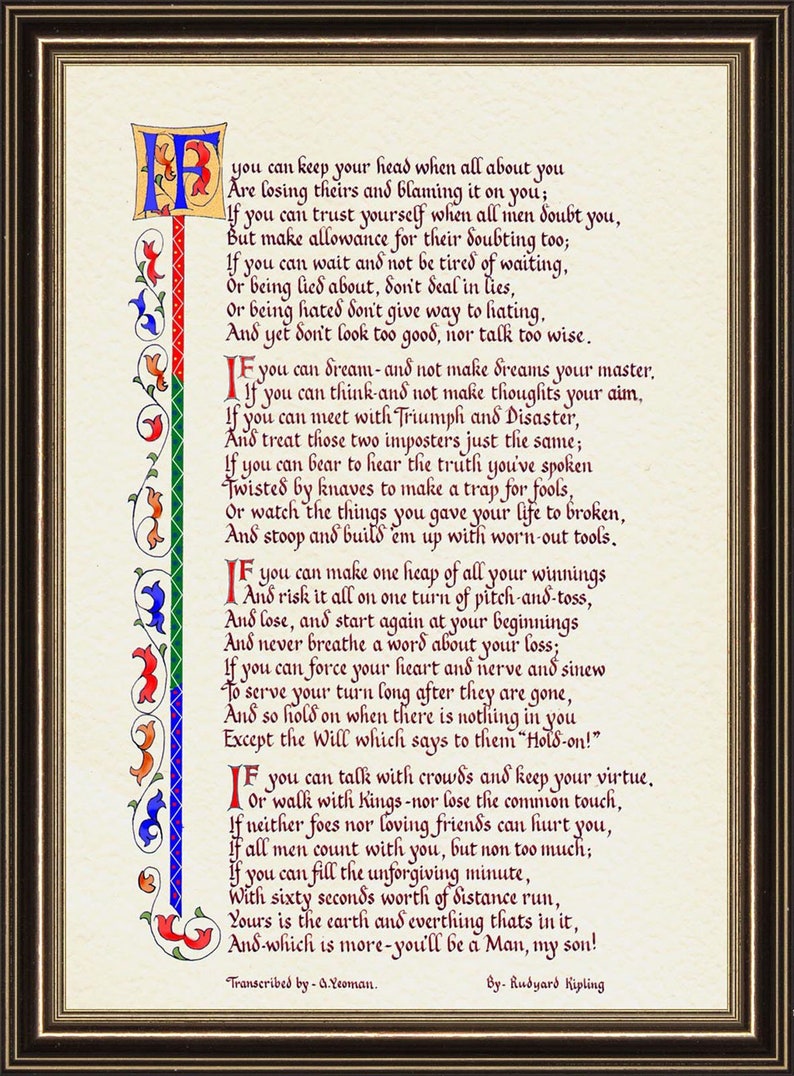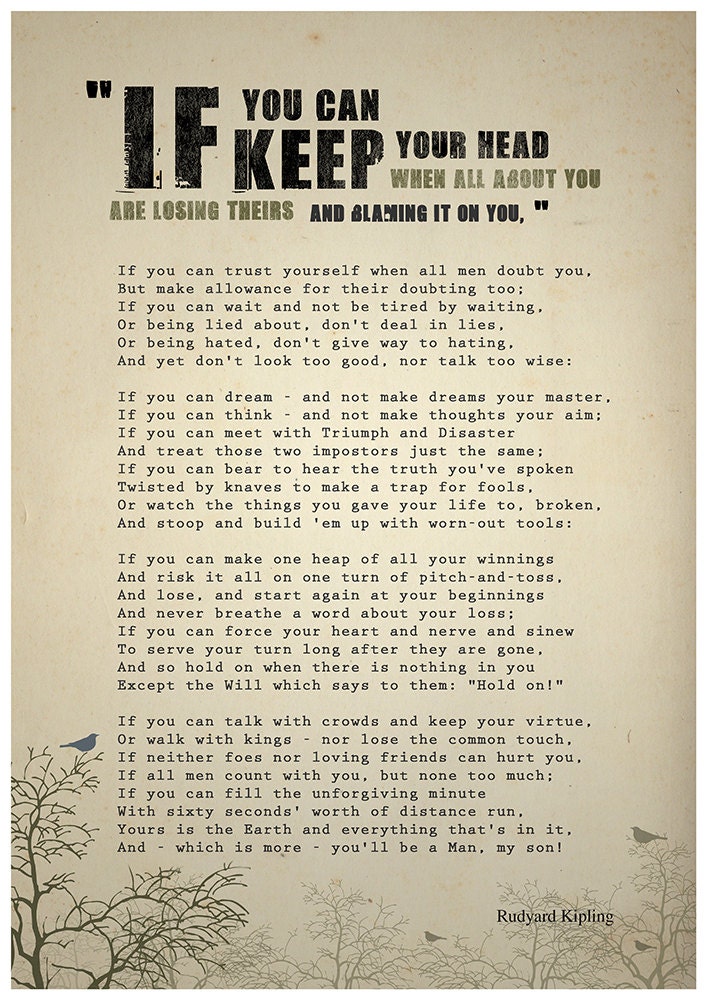


Forster, took up the subject of Kipling's poetry in a very insightful 1909 lecture. One of Britain's most famous writers, E.M. Eliot wrote of him: " an immense gift for using words, an amazing curiosity and power of observation with his mind and with all his senses, the mask of the entertainer, and beyond that a queer gift of second sight, of transmitting messages from elsewhere, a gift so disconcerting when we are made aware of it that thenceforth we are never sure when it is not present: all this makes Kipling a writer impossible wholly to understand and quite impossible to belittle." However, during his own time he garnered more respect and a great deal of popularity. Kipling's reputation has shifted throughout the years more contemporary readers and scholars find many of his poems difficult to love or respect due to their embrace and sometimes-promulgation of the imperialist, racist, and misogynistic attitudes that prevailed during the day. He wrote poetry throughout his life and published in newspapers, magazines, and collections and anthologies. His work, which is staggering in number, consists of such major poems as "If", "The White Man's Burden", "The Ballad of East and West", " Gunga Din", "Mandalay", and " Danny Deever". Although Kipling is perhaps most famous for his short stories like " The Jungle Book," he was just as famed for his verse as his prose.


 0 kommentar(er)
0 kommentar(er)
